Why do I run out of breath when I speak?
Has it ever happened to you, running out of breath when you speak? If there’s one thing you need any time you’re speaking, it’s your breath. But it’s incredibly common for speakers to run out of breath mid-sentence!
It’s alarming, embarrassing, and even terrifying. You find yourself miles away from the end of your sentence, squeezing your belly to get the last words out, and then gasping for air. Totally distracted, you lose your train of thought (and probably everyone’s attention). Not a happy moment for you, your audience, or your purpose for being on camera or on stage.
Here’s what’s going on when you unexpectedly lose your breath mid-talk, and the tools you need to keep your breath flowing.
Tension shuts breathing down.
Running out of breath when you speak is an indicator of tension in our bodies, particularly in our abdomen, neck, and torso. If we’re holding that tension there is less freedom and expansion in our ribs, which means less air available to carry our sound.
You could feel tension for any number of reasons such as:
- You habitually hold your body in tension.
- You’re wound up tight from stress or trauma.
- You have a history of being interrupted or not being allowed to finish your thoughts so you push through to keep the focus on you.
You need a roadmap to return to your natural ease and stop running out of breath when you speak.
The biological truth is that our bodies are designed to breathe. We automatically can supply the right amount of air to get us through the task at hand.
Drawing on my background as a singer and performer with three decades of continuous vocal training, I’ve developed three steps to easing the tension, whatever the source, so you can return to breathing ease.
1. Practice deep, whole body relaxation.
Guide yourself to relax every part of your body. Do it now, feeling the tension releasing as you bring your awareness to different parts to your body. Notice your breath becoming rhythmic, more gentle and easier. That’s number one: get familiar with what relaxation feels like.
2. Practice feeling relaxed while you make sounds.
Start with sighs and yawns. Look to make each exhale pleasurable and each inhale easy.
Next, exhale with a simple sound, like an “ah” or an “oh.” It doesn’t matter what vowels you use and they might change. As you make this tone, shake out your body to loosen up further. Shake your arms and wiggle your shoulders and your hips. Keep making the sound as you move.
Thirdly, as you exhale on a tone, rotate your head and shoulders gently. Try opening your jaw wide and stretching your tongue out. Bring a sense of curiosity always moving toward ease and pleasure.
3. Align your breath and your voice with an arm swing.
Hold your arm out to the side. Slowly, but with a bit of momentum, swing your arm down in front of you and up to the other side of your body, like a pendulum. As you swing, say “Dowwwwn and up. Dowwwwn and up.” Take an easy breath at the top of the swing and repeat. Modify the movement in any way so that it’s comfortable for you.
Next, take a script that you have for a live talk or video. Slowly begin swinging your arm as above, and speak the words slowly as you swing. Move your arm for as long as many words as your breath comfortably lasts. When your breath runs out, even if you are mid-sentence, pause your swinging for an easy inhale. Then continue to move your arm and pick up speaking where you left off. Switch arms or modify the movements to stay comfortable.
When you return to your script, let yourself be aware of where you want to breath and allow it to happen comfortably. If a sentence is long, don’t be afraid to take a breath in the middle. Long sentences have natural pauses built in.
Combining movement, breath, and speaking helps you become aware of the relationship between your breath and your voice. As you practice, you’ll begin to feel like your breath is carrying your words. It actually quite meditative and relaxing to do, if not downright enjoyable.
Then, when you are speaking at a luncheon or video conference or on stage, you’ll have the confidence that there will be enough breath for every sentence you deliver.
Want more exercises? Download my free Speaking Empowerment Kit with 3 mental rehearsals for different places you speak!
Related: 7 Natural Remedies and Tricks to Save Your Speech from a Hacking Cough
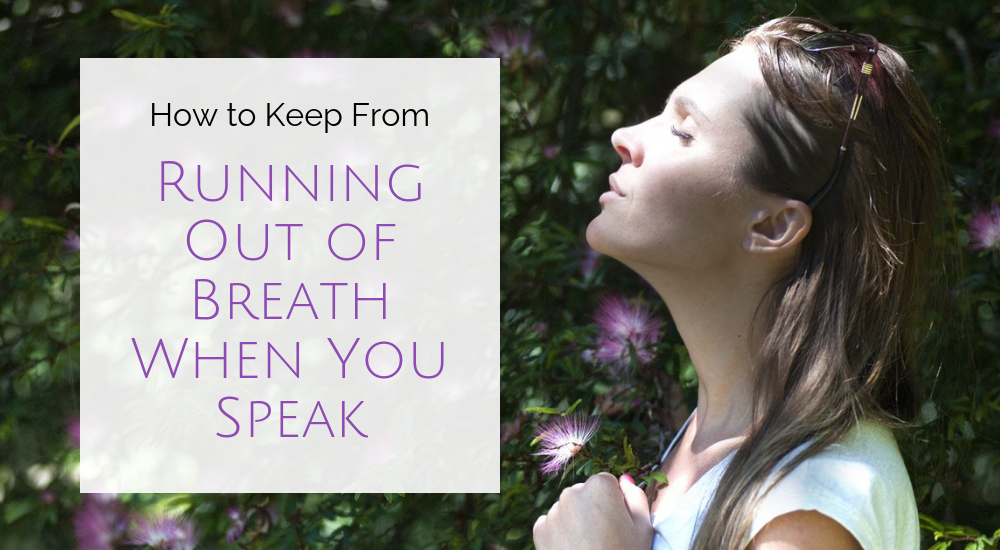

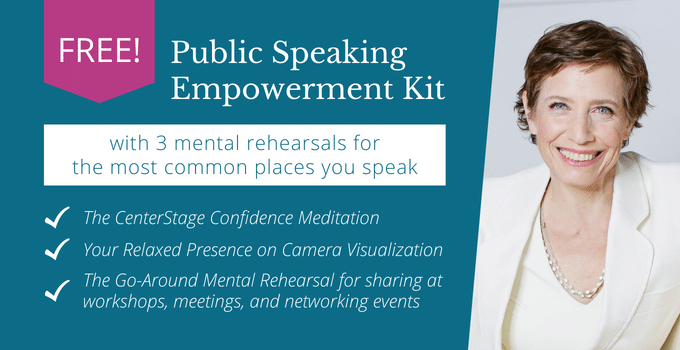
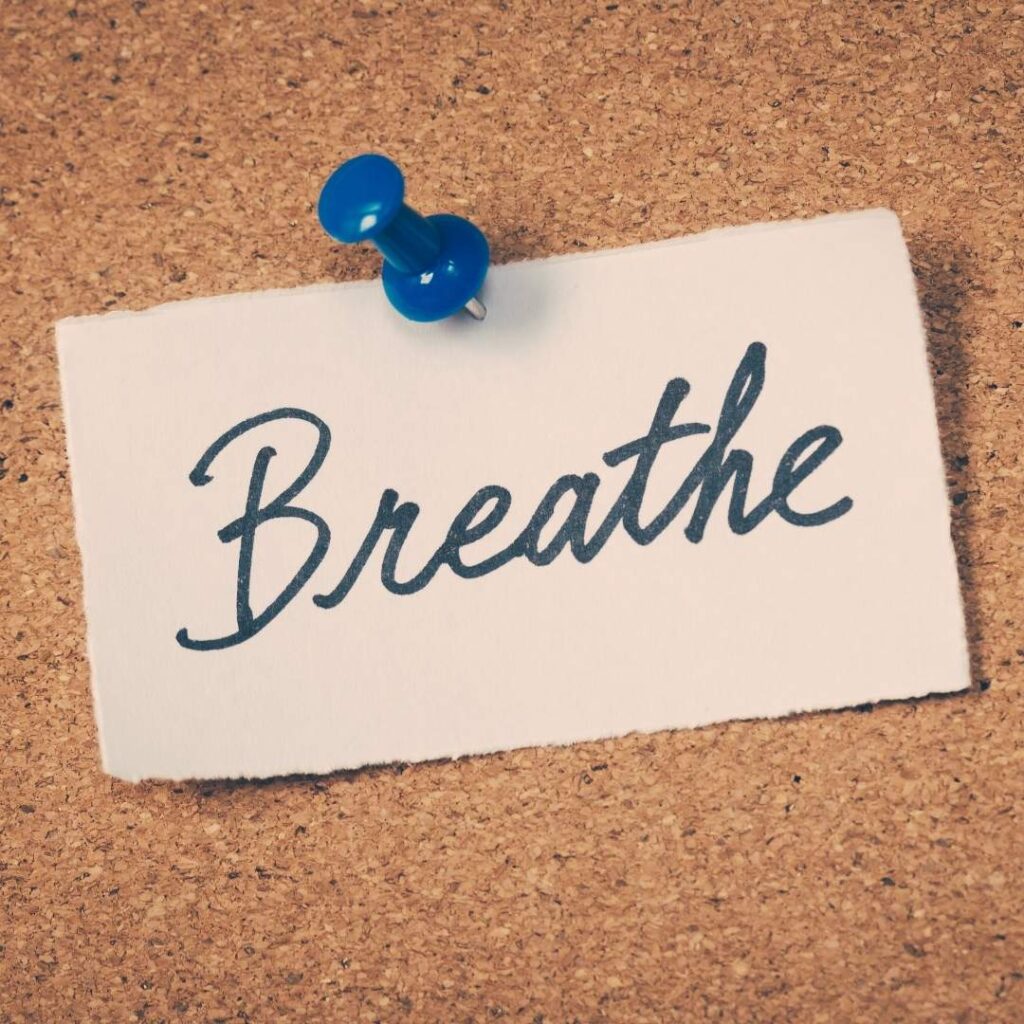


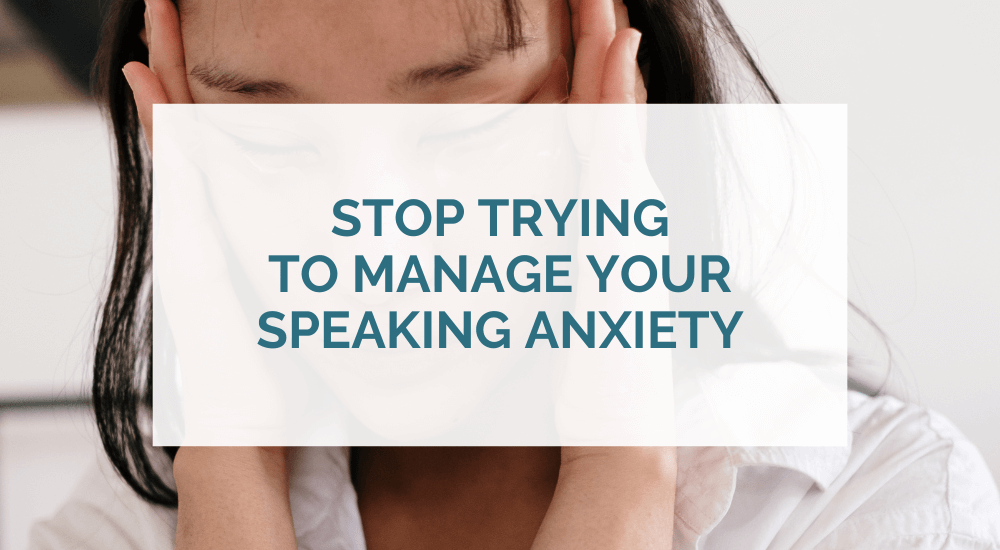
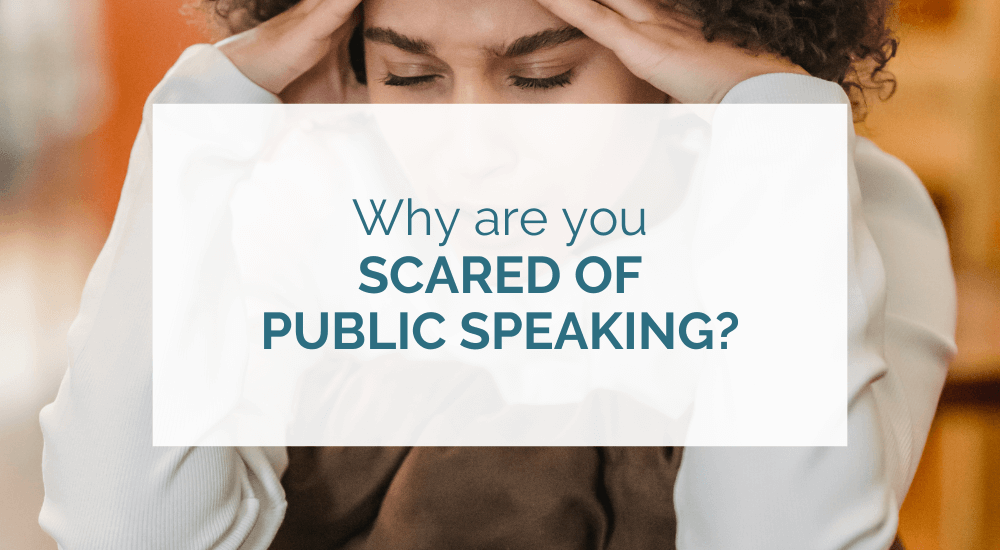
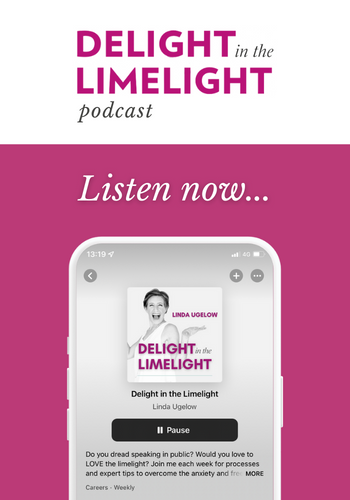
0 Comments